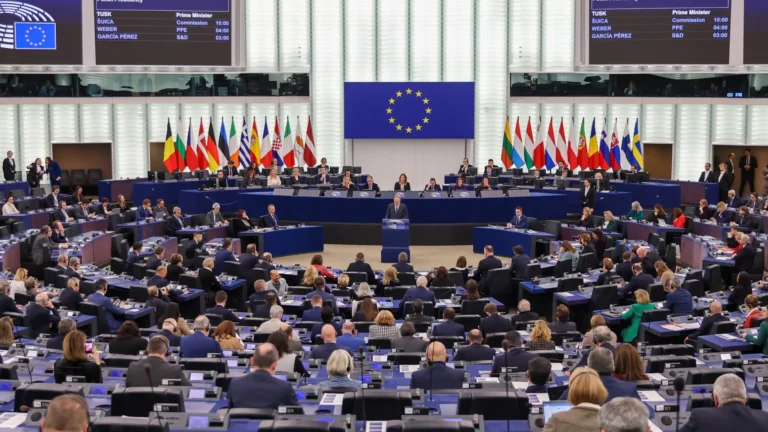In a decisive move to safeguard international maritime routes, President Donald Trump authorized extensive airstrikes against Iranian-backed Houthi rebels in Yemen on March 15, 2025. This action underscores the administration’s commitment to ensuring the security of global shipping lanes and countering regional threats.

(President Donald Trump Warning Houthi “It will rain Hell”)
Escalation of Houthi Aggressions
The Houthis, a Shia militant group supported by Iran, have intensified their assaults on commercial vessels in the Red Sea since November 2023. These attacks have disrupted a vital maritime corridor, compelling numerous shipping companies to reroute their vessels around the Cape of Good Hope, leading to increased operational costs and global trade inefficiencies.
The rebels have employed a range of tactics, including ballistic missiles, drones, and explosive-laden boats, to target both merchant and military ships. Their actions have not only threatened the safety of international crews but have also posed significant risks to global supply chains. In one notable incident, a missile attack by the Houthis resulted in the deaths of three crew members aboard a commercial vessel in the Gulf of Aden
U.S. Military Response

In response to these escalating threats, President Trump ordered a series of precision airstrikes targeting Houthi military infrastructure in Yemen’s capital, Sanaa. The operation aimed to dismantle the rebels’ capabilities by focusing on their bases, leadership, and missile defense systems. The strikes were executed by the USS Harry S. Truman carrier strike group, alongside other Navy vessels, marking one of the most significant military actions of Trump’s second term.
Announcing the operation, President Trump emphasized the necessity of using “overwhelming lethal force” to protect American maritime interests and restore navigational freedom in critical waterways. He further warned Iran against its continued support for the Houthis, stating that such actions would render the country “fully accountable” for its proxies’ activities.
Regional and Global Implications
The airstrikes have elicited strong reactions from the Houthi leadership. Nasruddin Amer, deputy head of the Houthi media office, condemned the attacks as a “war crime” and vowed retaliation against the U.S., asserting that Sanaa would remain steadfast in its support for Gaza.
The ongoing conflict has exacerbated the humanitarian crisis in Yemen, with significant civilian casualties reported from the initial attacks. The instability in the region has also led to a decrease in global trade, with over 2,000 ships diverting their routes away from the Red Sea by March 2024, resulting in increased shipping times and costs.
International Reactions and Future Outlook
The U.S. military’s Central Command has indicated that these strikes mark the beginning of a prolonged operation across Yemen, potentially lasting days or weeks. The objective is to dismantle the Houthis’ military capabilities and deter further aggression in the region.
This escalation ties into broader regional tensions involving Iran, which has significantly advanced its uranium enrichment amidst U.S. efforts for renewed negotiations over Iran’s nuclear program. The international community remains watchful, as the situation in Yemen could have far-reaching implications for global security and economic stability.
In conclusion, the U.S. airstrikes against the Houthi rebels represent a pivotal moment in addressing the escalating threats to international maritime security. The operation underscores the challenges of balancing military intervention with the imperative to protect global trade routes and maintain regional stability.


